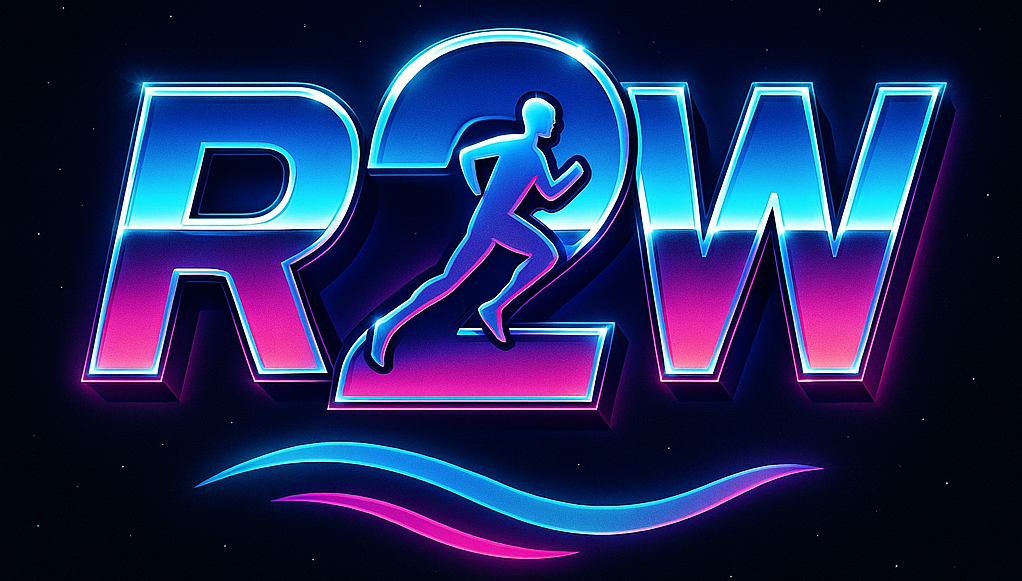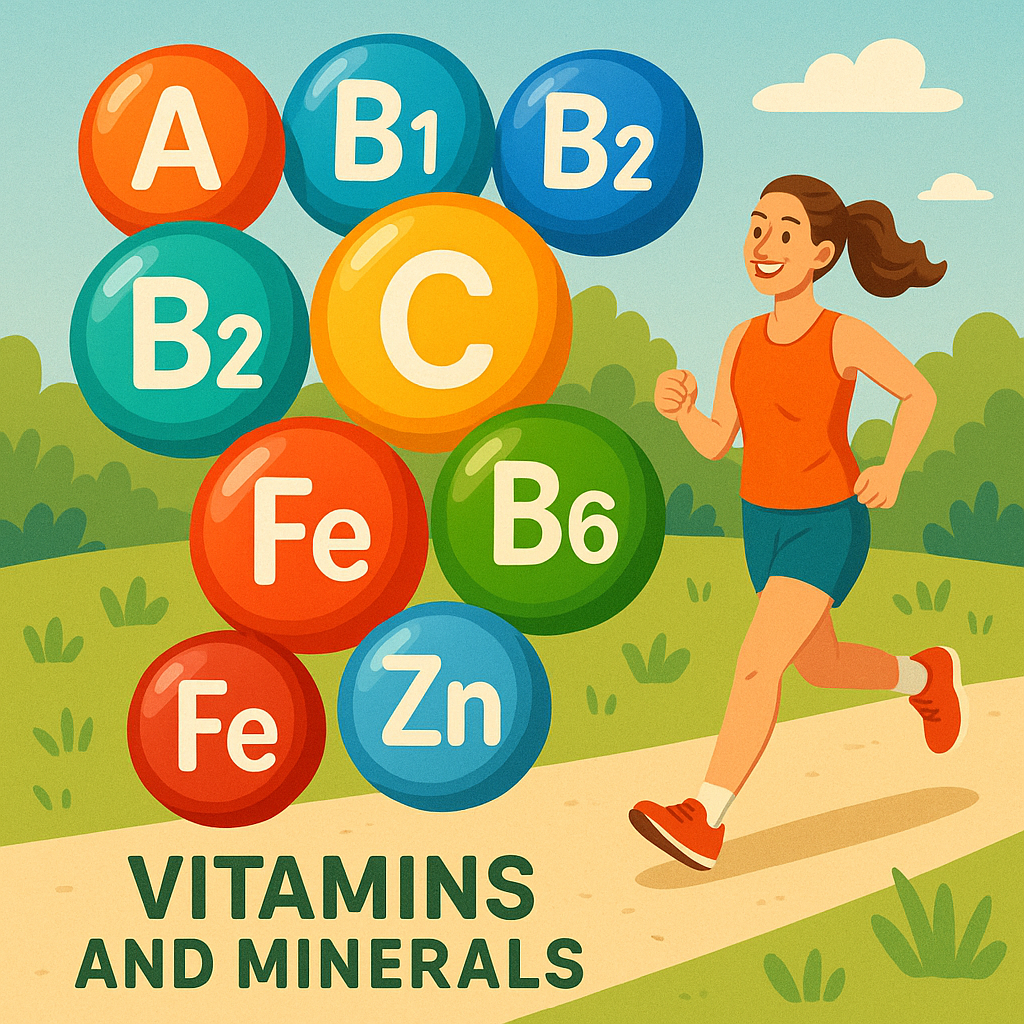
Mental health plays an important role in running performance, and what you eat can have a real effect on your focus, mood, and overall energy. For many runners, maintaining a balanced intake of vitamins and minerals is as key as physical training itself. Whether you’re a seasoned runner or just starting out, understanding the nutritional aspect helps you run better and feel more balanced both mentally and physically.
This guide digs into the vitamins and minerals that can support mental health in runners, offering actionable ideas to make sure your diet works for you. By taking care of your nutritional needs, you not only boost your physical endurance but also sharpen your mental resilience during long runs and intense workouts. Taking time to assess and adjust your nutritional strategy can truly step up your mental clarity, ensuring that every stride you take is supported by the right fuel.
Step 1: Understand Your Nutritional Needs
Before you make any changes to your diet, it helps to figure out what your body truly needs as a runner. Mental clarity and a steady mood can be directly influenced by the nutrients in your meals. Start by assessing what you eat on a daily basis and note how your mind and body feel after training sessions. Knowing this will enable you to tailor your diet around nutrients that matter most for mental health. Paying close attention to your body’s signals and recording them in a journal is a practical way to map out your current nutritional gaps.
Questions to Ask Yourself:
- Am I eating a balanced diet with a variety of fruits, vegetables, lean proteins, and whole grains?
- Do I feel mentally drained or unfocused before and during my runs?
- How often do I prepare meals that include nutrient-dense ingredients?
- What mood shifts do I notice after certain meals?
Example Nutritional Goals:
- Include a colorful array of fruits and vegetables in every meal for antioxidants.
- Ensure you have a good source of lean protein to assist muscle recovery.
- Practice mindful eating to recognize how different nutrients impact your energy.
- Integrate whole foods that naturally contain essential minerals.
Identifying your personal needs helps create a strong foundation for stepping up your mental clarity and overall performance as a runner. Expanding on this self-assessment can lead to insights on timing your meals and selecting the right kind of snacks that keep you energized through the day.
Step 2: Focus on Key Vitamins for Brain and Mood Support
The right vitamins can boost your mental clarity, support your nervous system, and help regulate mood. For runners, vitamins like B-complex and vitamin D often make a difference. The B vitamins help convert food into energy that your brain and muscles use. Meanwhile, vitamin D supports mood regulation and helps reduce feelings of fatigue.
Important Vitamins to Consider:
- B-Complex: Includes vitamins B6, B9, and B12, which play roles in energy production and brain cell repair.
- Vitamin D: Derived mainly from sunlight exposure, it’s important for mood and overall brain health.
- Vitamin C: Helps in the production of neurotransmitters and is a powerful antioxidant, protecting your cells from stress.
- Vitamin E: Works with vitamin C to protect cell membranes, potentially reducing oxidative stress during long runs.
Adding these vitamins via a balanced diet or supplementation, under professional guidance, can help you maintain stable energy levels and a positive mindset. Experimenting with foods rich in these vitamins might be an interesting approach to see what works best for you on training days. Remember that even slight adjustments such as switching to nutrient-dense alternatives can set you up for success both on and off the track.

Minerals and vitamins are indispensable micronutrients that play pivotal roles in maintaining overall health. 1 Daily, balanced consumption of these essential compounds fuels energy production at a cellular level, supports sharp cognitive function by facilitating neurotransmission and protecting neural pathways, and contributes to positive mental well-being through their involvement in mood regulation and stress response mechanisms. 2 Ensuring adequate intake through a varied diet is crucial for optimal physical and mental performance. 3
Step 3: Emphasize Key Minerals for Energy and Recovery
Minerals are just as vital as vitamins when it comes to supporting mental and physical performance. For runners, minerals such as magnesium and zinc can be especially helpful. Magnesium is known for its relaxing properties, which can help prevent cramps and reduce stress levels. Zinc, on the other hand, plays a role in immune function and helps repair tissues after a tough workout.
Really Important Minerals for Runners:
- Magnesium: Supports muscle and nerve function, and aids in maintaining a calm mind.
- Zinc: Assists in recovering from intense workouts and keeps your immune system strong.
- Iron: Important for runners who need an abundant supply of oxygen to their muscles. Iron also prevents fatigue by supporting hemoglobin production.
- Calcium: Plays a role in muscle contractions and the release of neurotransmitters, making it essential for both bone health and mental alertness.
These minerals can be sourced directly from foods or may be taken in as supplements if recommended by a healthcare expert. Ensuring you have the right balance of minerals may prevent the common pitfalls of deficiency, like fatigue, poor recovery, and diminished mental stamina during runs. A steady review of your nutrient intake can help you stay on track with your performance goals.
Step 4: Strategies for Incorporating Nutrients into Your Daily Diet
Knowing which vitamins and minerals are essential is just the first step. The challenge is incorporating them into your daily routine without feeling overwhelmed. One smart approach is to start with small adjustments and gradually build new eating habits. Focus on integrating foods rich in these nutrients into your meals, or consider targeted supplementation if you find it challenging to meet your needs through diet alone.
Ways to Boost Nutrient Intake:
- Add Color to Your Plate: Fruits and vegetables come in many hues, each offering different vitamins and antioxidants. They also help keep your meals interesting and flavorful.
- Choose Whole Grains: These provide a steady supply of energy and are packed with B vitamins.
- Lean Protein Sources: Foods like fish, poultry, or legumes supply essential amino acids that are building blocks for neurotransmitters.
- Supplement Wisely: If your diet lacks certain nutrients, consult with a nutritionist to choose supplements that fit your training and mental health goals.
By making these changes gradually, you can match your eating habits with your training schedule. This way, you ensure your body gets the support it needs to recover well and maintain a balanced mood. Integrating these strategies can also help you pinpoint which areas of your diet need a little extra attention, making daily nutritional planning both manageable and effective.
Step 5: Avoid Common Pitfalls: Overdosing and Deficiencies
The balance of vitamins and minerals is key. Taking too much of certain supplements can be just as problematic as a deficiency. Overdosing on fat-soluble vitamins like vitamin D or vitamin E could lead to adverse effects while falling short on nutrients such as magnesium might impair recovery and mood stability. Always consider the right amounts suited for your age, body weight, and training intensity.
Tips for Maintaining the Right Balance:
- Monitor Your Intake: Keep a food diary to track which nutrients you consume regularly.
- Consult a Professional: Regular check-ups or advice from a nutritionist can help tailor your diet to your unique needs.
- Avoid Self-Diagnosing: While plenty of online advice exists, getting personalized recommendations often leads to better results.
- Read Labels: Be aware of the amounts of vitamins and minerals in packaged foods and supplements.
Understanding these pitfalls means you can make smart choices that benefit both your energy levels and your mental clarity on the track. It’s important to adjust your approach as you learn more about how your body responds to different nutritional inputs and workout demands.
Step 6: Optimize Nutrient Absorption and Meal Timing
When it comes to nutrients, timing can make a difference. Eating the right foods at strategic moments throughout the day might support faster recovery and more stable energy levels during training sessions. For example, pairing certain vitamins with healthy fats improves their absorption. Similarly, spacing your meals can prevent energy dips and help maintain mental alertness throughout your runs.
Practical Tips for Better Absorption:
- Combine with Healthy Fats: Fat-soluble vitamins, like vitamin D and E, are absorbed better when taken with healthy fats such as avocado or nuts.
- Meal Timing: Eating smaller, balanced meals every few hours may help sustain steady blood sugar levels and mental focus during long runs.
- Stay Hydrated: Water assists in nutrient transport throughout the body and aids in overall performance.
- Avoid Overeating: Large meals can leave you feeling sluggish. Aim for quality over quantity.
Implementing these adjustments in your meal timing and composition could crank up the effectiveness of your nutrient intake. This not only supports physical recovery but also boosts mental alertness during your training sessions by ensuring nutrients are absorbed effectively.
Step 7: Consistency and Adapting Your Nutritional Plan
Health and performance improve over time when you keep a consistent approach to your diet. Just like training, gradual adjustments and steady habits lead to lasting benefits. As your training evolves, your nutritional needs may change too. Regular self-assessment and consultations with experts can help you tweak your plan and address any issues before they impact your running routine.
How to Stay on Track:
- Keep a Nutrition Journal: Document what you eat and how it affects your performance and mood.
- Set Realistic Goals: Start with small changes and ramp up slowly over time.
- Review and Adjust: Your body’s needs can change with intense training and changes in lifestyle, so check in with your progress at regular intervals.
- Be Flexible: Life changes, and so will your nutritional requirements. Adjusting your plan ensures you continue to support both your mental well-being and athletic performance.
By adopting a consistent and flexible approach, you build a foundation that supports peak mental performance without sacrificing your passion for running. The gains you see in both your physical endurance and mental sharpness can be truly empowering. Taking note of these adjustments on a regular basis can help you refine your strategy further as you progress.
Step 8: Review and Revise Your Nutritional Strategy
It can be very helpful to occasionally sit down and reflect on how your nutritional plan is working. By reviewing your food diary, energy levels, and overall well-being, you are better equipped to identify what changes need to be made. Asking yourself if the meals are fueling you properly or if there are areas where a slight switch up can yield even better results is an ongoing process. This extra step is all about fine-tuning your approach—even small tweaks can have a significant impact over time.
Consider dedicating a weekend afternoon every month to check in with your progress. Write down any patterns you notice, and make a note of both the successful choices and the ones that could use improvement. This continuous review not only reinforces a commitment to your health but also ensures that your dietary habits keep pace with your training demands. Often, these thoughtful adjustments lead to improvements in both recovery times and overall mood during runs.
Common Questions & Troubleshooting
What if I struggle to meet my daily nutrients?
It might seem challenging to adjust your diet as a runner with a busy schedule. Even a few small changes, like adding a nutrient-rich snack or a smoothie, can make a significant difference. Tracking your meals and noting any mood or energy shifts can help you identify key areas needing improvement, ensuring that you gradually fine-tune your nutritional intake.
Can supplements replace a balanced diet?
While supplements can help fill nutritional gaps, they are not a substitute for whole foods. Nutrients found in whole foods come with a range of additional benefits, such as fiber and antioxidants, which are not present in supplement form. Therefore, it is ideal to rely on a healthy diet, using supplements only when recommended by a professional.
How long before I see improvements in mental clarity?
The time frame can vary depending on your body and current nutrition level. Some runners notice changes within a few weeks, while for others, it may take a few months. Consistency is important, and regular monitoring can help you make adjustments along the way to keep your energy levels and mood on track.
Final Thoughts & Next Steps
Proper nutrition, especially for mental health, can have a surprising impact on your daily running performance. By understanding your nutritional needs and choosing the right vitamins and minerals, you have the tools to support a balanced mind and body. A thoughtful mix of diet and supplementation can foster energy, clarity, and the resilience needed to tackle long runs and intensive workouts.
Your Action Plan:
- Begin by identifying any nutrient gaps in your current diet, and note down how changes can boost both your mood and performance.
- Integrate one or two new nutrient-rich components into your meals, such as colorful fruits or lean proteins enriched with B vitamins.
- Monitor your energy levels and mood shifts over time to adjust your plan as needed.
What will you start with to boost your mental clarity and lasting energy as a runner? Your adventure to better performance may begin with a small, mindful change in your everyday diet. Taking action now can set the stage for steady improvements in both your training and overall quality of life.
Proudly powered by WordPress

